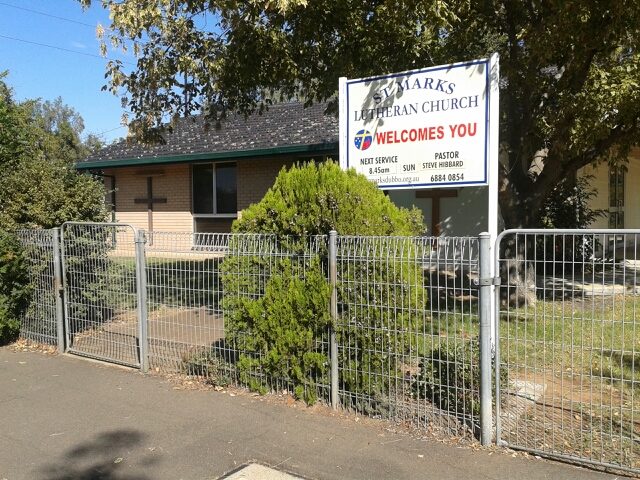Pentecost Sunday, 2024
John 14:15-18,25-26; 15:26; 16:5-15
Today is Pentecost Sunday. It is the third biggest day on the Christian calendar after Easter and Christmas. But it doesn’t get anywhere near the attention as those two celebrations do. How often, for instance, are you asked if you are going anywhere for Pentecost this year? Or, what you are having for Pentecost dinner? Doing anything special for Pentecost this next week?
For one of the big three major Christian festivals, it seems to come in a rather distant third. Perhaps it is because we have always been a bit perplexed about just who the Holy Spirit is and what the Spirit does. The birth of Jesus and his resurrection of the dead are concrete events that we can imagine. But what is the coming of the Spirit? The word ‘spirit’ means breath or wind, and it is God’s breath coming upon us. But how do we portray that? The Spriit of God is referred to early in John’s Gospel by John the Baptist as ‘descending upon Jesus like a dove.’ And so we often use the image of a dove to portray the Spirit. And in Acts 2 the Spirit is said to have descended on the followers of Jesus like tongues of fire. So we sometimes use the image of a flame to portray the Holy Spirit. But while images of doves and flames give us some useful symbols, they do not tell us much about what the Spirit does. When asked that question, we have to think hard. It is not an easy question for us. And perhaps that is why this important celebration seems a bit subdued compared to Easter and Christmas. How do you celebrate that which cannot be seen – that which cannot be easily understood?
Jesus knew that his disciples would find the coming of the Holy Spirit not just overwhelming, but difficult to understand. We have read the account to that day in Jerusalem, just 10 days after Jesus ascended to the Father, that the Spirit came upon them. It was quite an event. It was a day that none of the disciples could have imagined. And it was a day never to be repeated. Though its impact would echo through the centuries. They disciples were all proclaiming the resurrection of Jesus to the crowds in the city that had gathered from all over the world. And in a literal reversal of the story of the Tower of Babel, everyone suddenly understood them and were convinced they were speaking their own language. It was like something out of science-fiction. Like the Babel fish of Hitchhiker’s Guide to the Galaxy, or the Universal Translator of the Star Trek series. Except there was no science fiction back then. So even in their wildest imaginations the disciples could not conceive just what was happening.
That is why Jesus tells them about the Holy Spirit before he leaves them. They are the words John records in the today’s Gospel reading. So when on the day of Pentecost the Spirit came upon the disciples in great force, like tongues of fires, they were able to comprehend the gift that Jesus had given them. They would have recalled and begun to understand what Jesus had told them when he was still physically present with them.
Jesus had not left them. Jesus was their friend and advocate. The one who was on their side. And now the Holy Spirit would be fulfilling that role on his behalf. The Holy Spirit had come upon them at Jesus’ request and would guide them. He would lead them into truth, remind them of the words of Jesus, would open the hearts and minds of all those whom God would have follow him.
And so they understood that the true power of the Spirit is not the spectacular display on the day of Pentecost. That never happened to the disciples again. That was a miracle of confirmation, to show everyone gathered in the city that the message of Jesus was one of power and truth. The true power of the Spirit is to be found in the simplicity of the Spirit’s task: to remind us of who Jesus is and what Jesus has done for us. To remain with and in us and to lead us continually to the truth. And what is this truth? For those who have been following John’s Gospel we know the answer already. Jesus is the truth. The Spirit tells us about Jesus, reminds of what Jesus taught, dwells in us as Jesus himself dwells in us, helps us to understand who Jesus is, and helps us to tell the world about Jesus.
When I was going this text in John’s Gospel in preparation for today’s sermon I was struggling to find a good summary of who the Holy Spirit is and what the Holy Spirit is all about. So my wife read the text and said, ‘It seems to be all about Jesus.’ And then I realised that that was, of course, the point. I was trying to find something new and remarkable about the Holy Spirit from these words, but they simply keep coming back to Jesus. And that is exactly what this text is telling us. That is the true power and the true focus of the Holy Spirit. The Holy Spirit is not about himself. The Holy Spirit is all about Jesus.
The Holy Spirit comes to point us to Jesus. And perhaps that is why we find it hard to describe just who the Spirit is and what the Spirit does. Because the Holy Spirit doesn’t come to tell us all about who he is and what he is like. The Spirit instead comes to point us to Jesus. If we try to make the Holy Spirit about something other than Jesus, we have missed the point. If we try to make the Holy Spirit into some kind of supreme show master, performing great miracles and signs on demand, we miss the point. If we think the Holy Spirit is all about us, about making us special through some spectacular gift or gifts understood apart from Jesus, we have again missed the point.
We have missed the point because the core of what the Spirit does is greater and more important than any of these things. The main task of the Spirit is more powerful than any of these things. The Spirits lead us continually to Jesus. Look closely at the words Jesus spoke to his disciples about the Spirit. ‘When the Spirit comes he will not speak on his own, but will speak what he hears. He will speak on my behalf,’ and again, ‘the Spirit will glorify me,’ and again, ‘The Spirit will take what is mine and give it to you.’
In fact, Jesus says of the coming of the Spirit that he will not leave us orphaned, but will send us another Advocate. Jesus says that with the coming of the Spirit he himself is coming to us.
So when we think of the Holy Spirit and what the Spirit does and our thoughts should return again and again to Jesus and the power of his message, to the comfort of his presence, to the victory of his death and resurrection. When this happens we are beginning to understand the true power of the Holy Spirit. The Holy Spirit did not come to us to gain his own following. He is not in competition with the Father and the Son for ‘likes’. He did not come to give us gifts to be used to impress our friends or so we could feel important. The Spirit came to point us to Jesus. He came to give us gifts that would help us to proclaim and serve Jesus.
And that’s why the Holy Spirit is important. That’s why the coming of the Holy Spirit marks the beginning of the Christian Church. That’s why we celebrate the coming of the Spirit on Pentecost Sunday. That’s why we recognise the Holy Spirit as the third member of the Trinity, together with eh Father and the Son (more on that next week!).
On the day of Pentecost the Spirit came in spectacular tongues of fire. The Spirit allowed everyone to hear the message about Jesus in their own language. That was the start. But just because we do not see visible tongues of fire today, just because you are not hearing this sermon in your native language, if that is different than English, that does not mean the Spirit is any less active. The Spirt was never about putting on a big show, but simply about helping us to see Jesus.
If you want to know if the Spirit is still active today. If you want to know if the Spirit still works in you today, then think about those times when you have been nudged toward faith when you couldn’t explain why. That’s the Holy Spirit at work.
Think about those times when you have been drawn to the message of Jesus when you weren’t even looking for Jesus. That’s the Holy Spirit at work.
Think about those times you have been led to be in the right place, or to say the right thing, to help someone else understand Jesus. That’s the Holy Spirit at work.
Think about those times when against all natural and more selfish motivations, God has led you down a different path than the one you had wanted to follow. That’s the Holy Spirit at work.
So do not worry if you have trouble explaining exactly what or who the Holy Spirit is. If you understand who Jesus is for you, then the Spirit has already been at work in you and continues to be at work in you.
And may God’s Spirit go with you and continue to comfort you in your faith in Jesus. May God’s Spirit continue to confirm in you the truth of Christ. May God’s Spirit continue to give you the words and courage to tell others about Jesus.
Amen.
Pastor Mark Worthing.
Port Macquarie.






